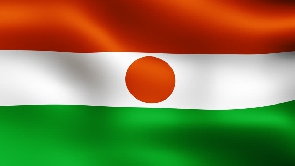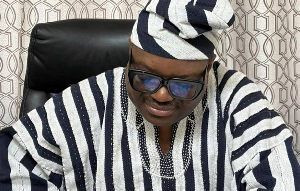The Energy Ghana Magazine, the country’s leading energy, Oil and Gas magazine has attracted huge patronage barely two weeks after being launched onto the local market.
The free quarterly magazine, seeks to explore the happenings in the country’s energy industry by providing news and information on oil and gas.
The magazine launched in August, is also designed to provide thorough information on the petroleum sector and stimulate intellectual discussion for enhanced policies.
Mr Henry Teinor, Chief Executive Officer of Energy Media Group, told the Ghana News Agency that site patronage has increased tremendously after the launch as more and more people read the magazine directly online.
“Our free quarterly magazine, Energy Ghana Magazine, is receiving a rousing welcome by industry players. More corporate entities and businesses are ready to partner and advertise in it,” he said.
Mr Teinor also said the magazine was strategically positioned and uniquely couched to address myriad of challenges associated with the oil and gas industry by bringing to the fore, professional in-depth research and analysis.
This, he noted, would help educate both industry players and the public to make informed decision about the energy sector.
The August issue of the magazine features seasoned energy experts, discussing topics such as “the politics of power crisis in Ghana-chronology of government responses and lessons for ending the current crisis.
“Natural gas; a fuel with substantial value-addition prospects for Ghana, and the Ghana-Ivory Coast maritime boundary dispute: who wins, who loses?
“Africa’s golden gateway-investment opportunities in Ghana”; “Ghana fuel deregulation policy - manna from heaven or fire from hell, as well as Ghana power conundrum; the hype, the hope and the reality”.
Dr Kwame Ampofo, Chairman of Energy Commission of Ghana, in a prelude to the maiden edition, noted that, the way forward to the country’s energy challenges was to start with a deep knowledge and understanding of the factors that have worked in tandem to create what he called the “vicious cycle” of problems.
He said the scarcity of conventional energy resources and the environmental implications of their production, transportation, processing and final consumption, compounded by over cautious financial environment, have made the economics of energy management and policy complicated.
Dr Ampofo noted that, it was rather worrisome for decision makers, as to what the best options are for the sustenance of national economic growth and social welfare of the citizens.
“Fortunately, the Energy Ghana Magazine has come to bridge this huge gap,” he said.
Business News of Sunday, 13 September 2015
Source: GNA












